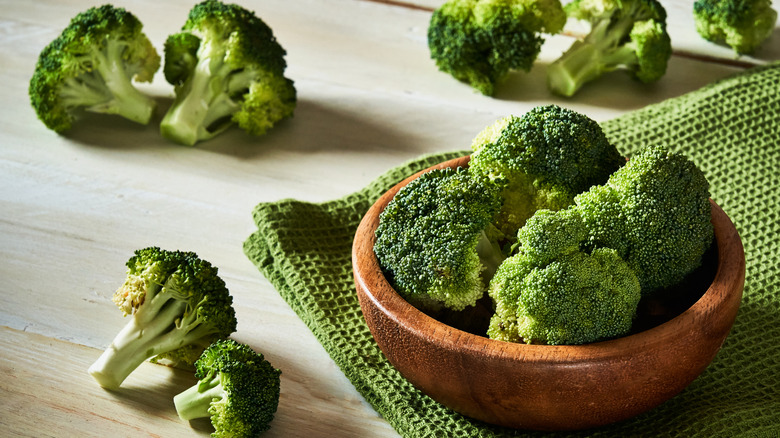One Type Of Vegetable May Be Able To Reduce Your Risk Of Colon Cancer
Colon cancer used to be something you mostly heard about later in life. But the American Cancer Society reports that cases in people younger than 55 are on the rise. In a 2023 study published in CA: A Cancer Journal for Clinicians, about 1 in 5 people diagnosed with colorectal cancer were under 50. That's up from just 1 in 10 in the mid-1990s.
(Know the early signs of colorectal cancer.)
The National Cancer Institute hasn't pinned down exactly why rates are climbing among younger people, but researchers believe diet, inflammation, and gut health may play a role. Diets high in processed meat and fat, and low in fruits and vegetables, are increasingly linked to colorectal cancer risk. On the flip side, one group of vegetables may help protect your gut and lower your risk.
A 2025 meta-analysis published in BMC Gastroenterology found that cruciferous vegetables like broccoli, Brussels sprouts, and cauliflower can cut colon cancer risk by up to 20%. And you don't have to eat a ton of them to see the benefits. Just 60 grams (about ⅔ cup of raw broccoli) was enough to have a protective effect on your colon.
Nutrients in cruciferous vegetables that protect against colon cancer
You probably know cruciferous vegetables for their gassy side effects. That's because they're packed with fiber. A cup of broccoli has about 2.4 grams to keep you full, support regular digestion, and feed the good bacteria in your gut. But there's more to these veggies than fiber. They also contain powerful plant compounds that may help protect against colorectal cancer, according to a 2022 review in Evidence-Based Complementary and Alternative Medicine.
The key players are compounds called glucosinolates. When you eat cruciferous vegetables, your body breaks these down into sulforaphane and indole-3-carbinol (I3C). Sulforaphane may help strengthen the gut lining, clear cancer-causing substances, block cancer pathways, and even trigger cancer cell death. I3C could slow cancer cell growth and help regulate which genes switch on or off.
Glucosinolates may do most of the work in protecting you from cancer, but they're not the only potential cancer-fighting nutrients in cruciferous vegetables. These veggies are also rich in phenolic compounds like quercetin, kaempferol, and apigenin, which are antioxidants that have been linked to reducing inflammation and stopping tumor growth. On top of that, they deliver vitamins C, E, K, folate, and beta-carotene, all of which can support your immune system and overall gut health.

